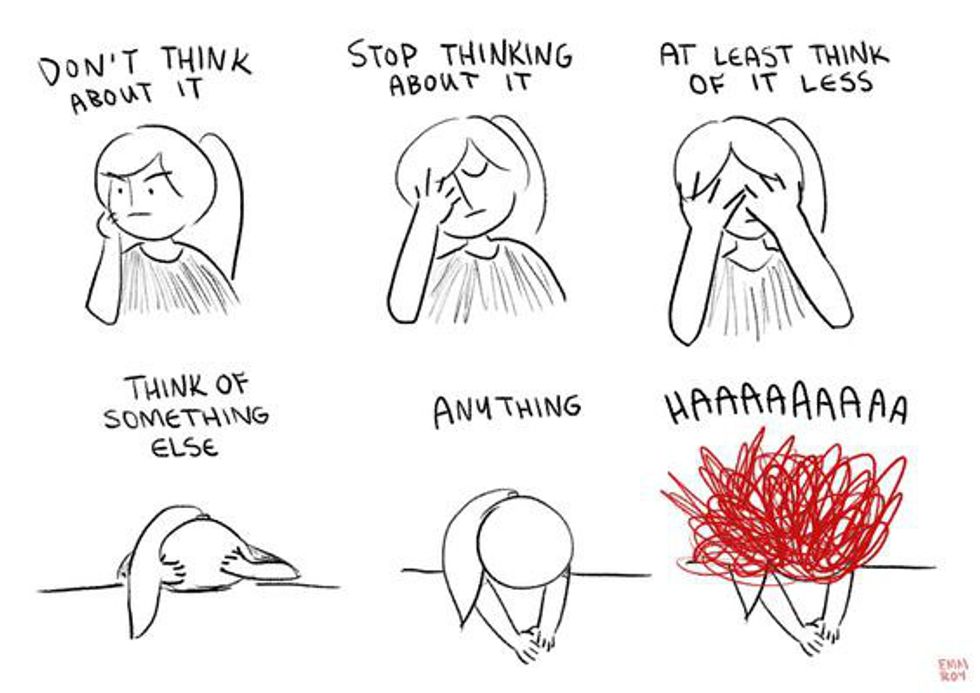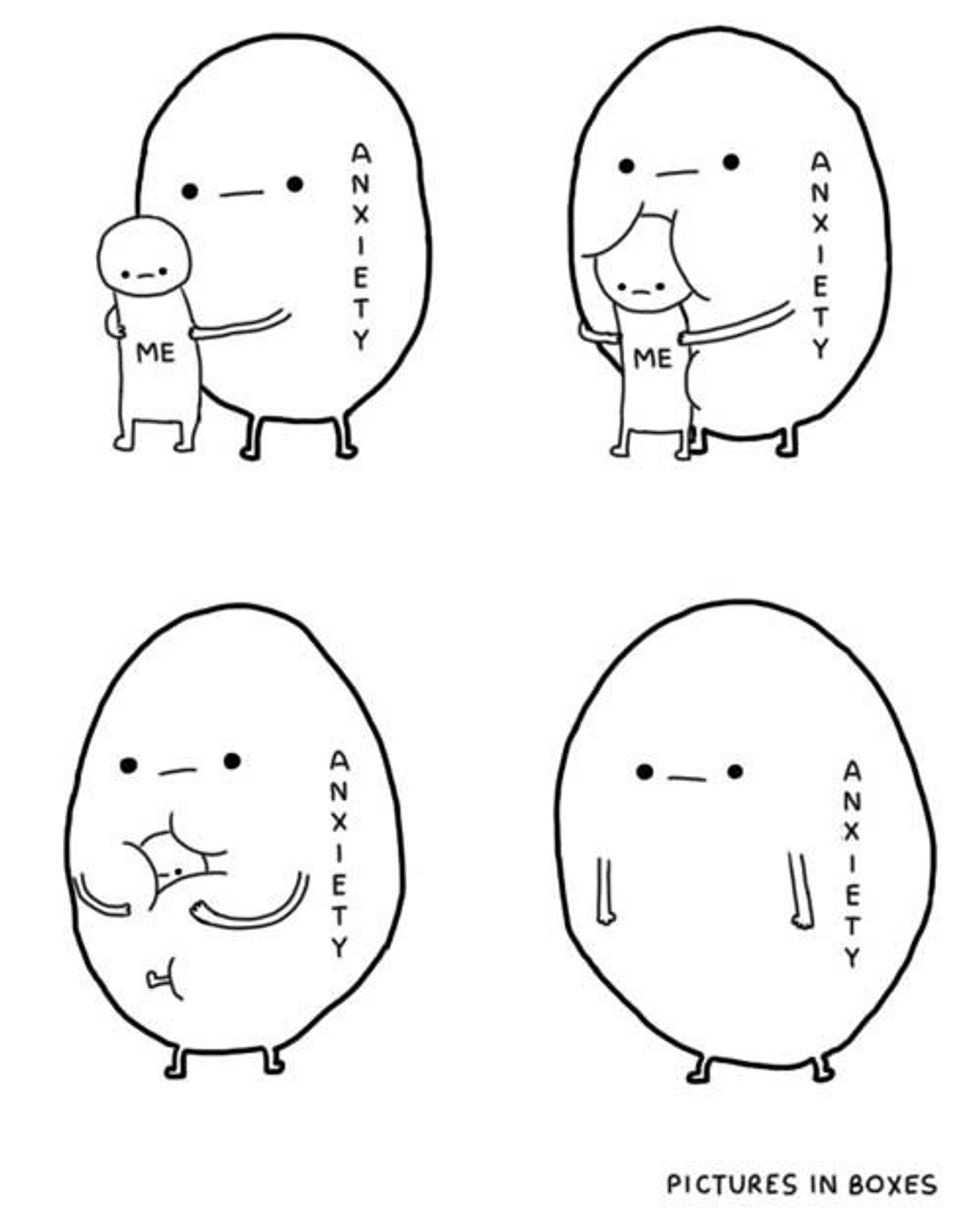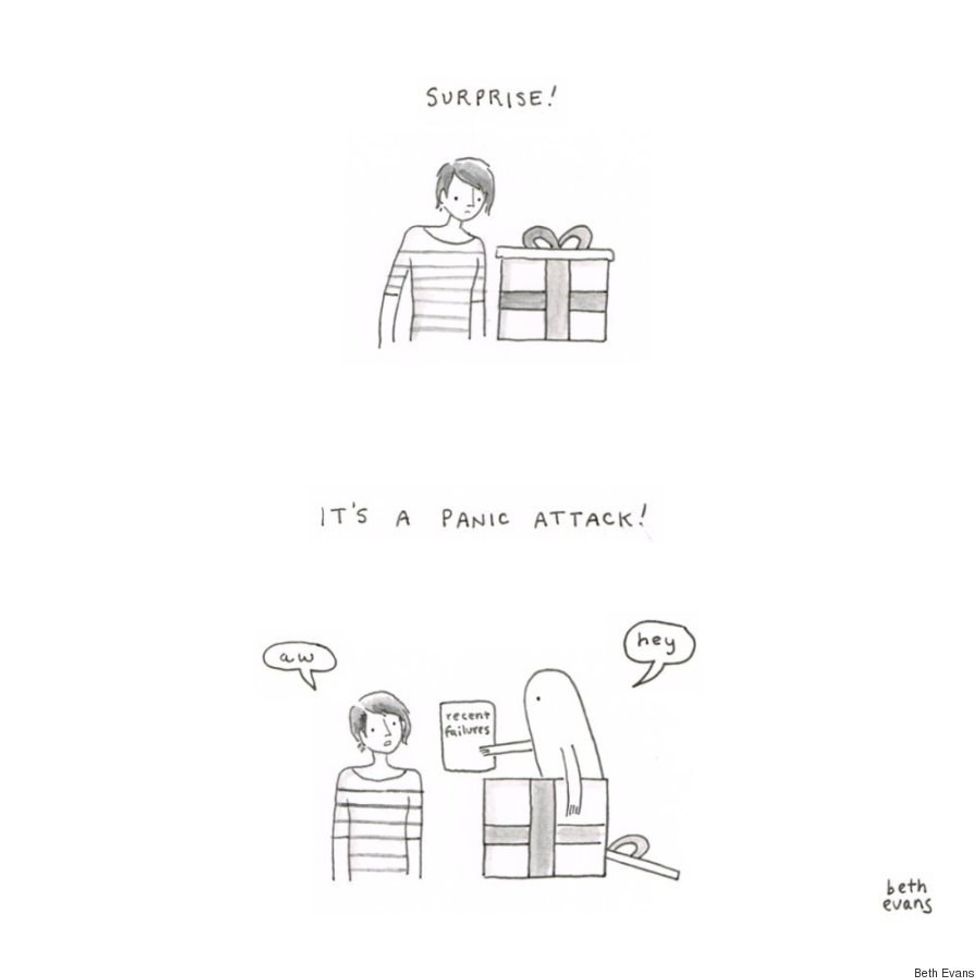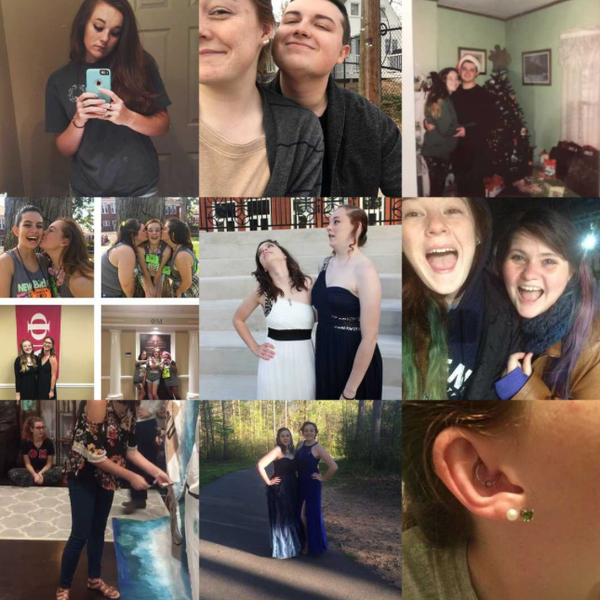One of the most comforting things in the world, when you are someone who lives with a significant amount of anxiety, is finding other people who struggle similarly. The ability to exchange coping mechanisms and understand one another eases the already-stressed-mind. A good majority of the people I spend my time with have experienced anxiety in one way or another, and this tends to strengthen the relationship. Common ground is what builds relationships, and when it comes to anxiety, having a fair amount of common ground with another person can be oh-so relieving. Over the years, especially as I've come to know many peers who struggle similarly, I have encountered a handful of people who find it difficult to understand that anxiety comes in many different shapes and sizes — that is, not all anxiety is the same and it definitely doesn't manifest itself in a uniformed manner.
What is anxiety?
Classically, anxiety is an emotion, defined as worry or excessive nervousness. When it comes to more psychological definition of anxiety, it gets a little bit trickier to define. Anxiety is considered a mental health disorder* with a series of subgroups that include obsessive-compulsive disorder, panic disorder, post-traumatic stress disorder, social anxiety disorder, and general anxiety disorder.
*The word "disorder" seems to imply that something is broken or needs fixing, but mental health doesn't work like that and people who struggle with anxiety don't need to be "fixed."
Experiencing Anxiety

Anxiety is not just limited to the symptoms and subgroups that are typically assigned to it, such as heart palpitations, dizziness, and insomnia.
Why? Well, the unique thing about anxiety is that everyone experiences it differently. This concept can be really hard to grasp, even for people who struggle with anxiety every day. For me, my muscles get tense and I feel like I am on a never-ending roller coaster that makes dips and turns into the ocean, so it can be hard to breathe, focus, and stay in touch with what's really happening in reality. My experience with anxiety is probably very different from your perception of anxiety, whether you struggle with the disorder or not. Anxiety has unique ways of manifesting itself and symptoms of it range far and wide. Some of these can include, but are not limited to overthinking, irritability, excessive questioning, fatigue, racing thoughts, dread, and something nothing apparent at all.
While my experience of anxiety can feel very real to me, I can look completely calm on the outside, and I think that's where a lot of misconceptions come from. Comments I have heard, in reference to myself or friends who also struggle with anxiety, include, "You don't look like you're anxious," or "Yeah, I've been so anxious and stressed the past few days. Things are just really building up."
And that is where I like to draw the line: stress and anxiety are not the same things.
Stress vs. Anxiety

What can you do to help?
Not everyone who struggles with anxiety necessarily wants to be helped. For a lot of people, anxiety becomes a part of them and they learn to cope. However, if someone you know is struggling with anxiety, it is worth asking what you can do to help. Here are a few tips:
1. Ask if they are okay or if there is anything you can do to help them out. If they say no, don't be offended. Respect their wishes.
2. Listen. Listening is key when it comes to mental health, and especially when it comes to anxiety. Let them explain how anxiety affects them and don't interrupt with your own stories of anxiety or stress, even if you have valid points to make.
3. If you have something to say about your own experience with anxiety that you think might help, ask them if it's okay to discuss how you've handled anxiety in the past and what has or hasn't been helpful for you.
4. Understand that because anxiety manifests itself differently in everyone, some things might be harder than others. For instance, some people find it really hard to enter new settings, such as a club, or going out to eat in a public space. Just be open and understanding to the best of your ability and ask what you can do to help, if anything.






















